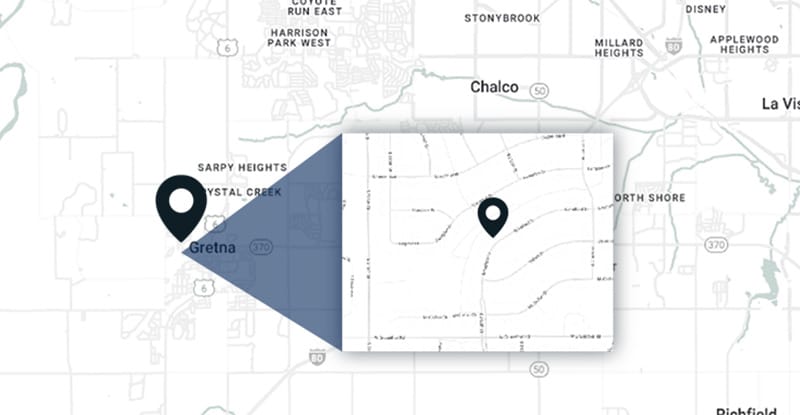Professional Corporate Debt Recovery Services For Ohio Businesses
Managed By Experienced Debt Collection Experts In Ohio
Ohio, like other states in the U.S., has statute of limitations and various other laws that help determine a deadline when it comes to filing a lawsuit or other civil actions. This page will provide information related to Ohio including: state economy, unemployment rate, state debt and statute of limitations. All information included is provided by recent case studies or other industry experts.
Statute of limitation laws are mandatory time limits that the legal system put into place to provide a general fairness and practicality when it comes to filing a lawsuit. Ohio’s statute of limitations can range from one to 21 years depending on the nature of the lawsuit.(FindLaw.com)
Between 2011 and 2013, the median annual household income in Ohio was $46,672. Ohio residents earned incomes between 200 and 399 percent of the federal poverty level during that time period. In September 2014, Ohio had an unemployment rate of 5.6 percent, the lowest rate when compared to surrounding states.(Ballotpedia.org)
In 2014, it was reported that Ohio had a state debt of approximately $321.3 billion. The state debt per capita was $27,836. This state debt was determined after reviewing four components: market-valued unfunded public pension liabilities, outstanding government debt, unfunded other post-employment benefit liabilities and outstanding unemployment trust fund loans. (Ballotpedia.org)
In September 2015, Ohio was named the 22nd best country in “taxpayer burden,” a term used when describing how much money each taxpayer would need to send to their state’s treasury office in order for the state to become debt-free. In September 2015, the taxpayer burden in Ohio was $3,500. (Ballotpedia.org)
Prestige Services, Inc. (PSI) works to ensure quality debt collection that works within Ohio’s collection laws whether that means staying up to date on collection licenses, industry news, and economy data within the state.
Check Laws by Cities in OhioOhio’s Leading Debt Collection Solutions For Businesses



Corporate & Commercial Debt Recovery Services
Are you in Ohio and need professional support to recover corporate and commercial debts? We can help you. We have extensive experience to guarantee optimal results, which means not damaging your business relationships, but getting the money you are owed back. Don’t worry, we work with integrity and total ethics. Just tell us about your case and our specialized team will let you know how we can help you. We will handle everything with total confidentiality.


Domestic & International Debt Collection Solutions
We know that sometimes managing international collections can be challenging. You need to know the local laws, but also those of other places. Therefore, it is key to have a specialized team that can help you with the entire process. If you are in Ohio, but your debts are in another location, just let us know. After that, we will design a strategy that adapts to your needs and requirements, so that you get reliable results. This way, you can maximize your chances of recovering the debt.
Asset & Liability Investigation Support
It is essential to be certain that the debtor can pay their debts. To this end, we have a team with in-depth knowledge of how to investigate assets and liabilities. With this information at our fingertips, we can identify different opportunities to recover these debts. For example, to obtain a reference on the debtor’s ability to pay. At the same time, it is possible to analyze risks to determine the chances of success. Leave it to our team in Ohio!


Legal Assistance For Debt Recovery
We know that managing this type of debt requires a great deal of specialized knowledge. For this reason, we work directly with professionals who can help you understand Ohio regulations and much more. What does this mean for you? For example, you will begin to understand the legal mechanisms for claiming what you are owed. Similarly, you will have the support of a team that will protect your interests to improve your chances of recovering that money.
Comprehensive Debt Recovery Solutions For Ohio Companies

Simplified Account Placement
Simplified processes, faster and more efficient results. That’s our philosophy! We help Ohio businesses recover their debts faster than the competition. For example, we are extremely well organized, which allows us to review information and manage each file strategically to avoid any delays that could hinder results!

Proven Results In Recovery
Beyond being well organized, we have proven results. Companies both inside and outside Ohio have achieved fast but efficient debt recovery. We have a transparent process that covers everything from initial analysis to communication of progress to the definition of final financial results. In other words, you will be able to track the status of your debt recovery.

Custom Collection Plans
Does having experience mean that we work with a plan that adapts to each company? No, quite the contrary. To achieve optimal results, it is vital to analyze the current documentation and understand the best strategy for your real needs. By setting priorities and having a realistic outlook on results, we can achieve efficiency in the process and a higher success rate.

Skip Tracing Experts
If you don’t know where your debtors are, don’t worry. We have a team that specializes in these kinds of complicated cases. We can analyze different movements, verifying data, to obtain information that is up-to-date and accurate. Thanks to this specialized work, we can maximize the chances of success in recovering debts, reducing risks.

Litigation Support Referrals
Analyzing your case in depth means helping you connect with a specialized team, including attorneys, who will provide you with optimal representation from the outset. The idea is to provide you with comprehensive service for your company. Regardless of your situation, we will support you and give you an objective view of your situation.

Legal Assistance For Creditors
We have a team in Ohio that will accompany you through every stage. This includes verifying the debt, communicating with debtors, and following up on the process. Our goal is for you to get the results you want. Therefore, we work to maximize recovery, giving you the most objective view possible of your chances.

Post-Judgment Recovery
When you obtain a favorable judgment, it is a reason to celebrate. However, our work does not end there. We help you achieve real and effective recovery in post-judgment collection. How do we do this? Simple, by coordinating seizures and applying legal resources to enforce the order, removing any possible obstacles that prevent you from your money.
Simple Access To Business Credit Reports
We know that obtaining financial information about a particular company can be a complicated process if you are not an expert in the field. However, with years of experience helping companies recover debts in Ohio, we can obtain reliable credit reports in record time. Thanks to these reports, which contain up-to-date information, we can make sensible decisions to achieve good results. Always based on objective metrics! Thanks to this, we can prioritize your interests, analyzing existing opportunities so that you get the best possible results. If this is what you are looking for, the best thing for you is to hire a team like ours.


Track Record Of Debt Recovery Success
Just as you would not leave your company’s finances in the hands of just anyone, you should not take the same approach to debt collection. In fact, it is always a good idea to have a specialized team with years of experience in debt collection. In our case, we can help you achieve your goals, guaranteeing total transparency at every stage of the process. We will be your allies in achieving the financial stability of your business that you care so much about, which is why we offer more than “just helping you collect.” To do this, we perform asset analyses and even take legal action when necessary. We always prioritize your well-being.
Licensed & Bonded For Your Protection
As we mentioned earlier, we work to ensure the financial stability of your business, which means we are committed to your peace of mind. We know that having unpaid debts is a headache, as you are unable to meet your own payments with complete peace of mind. Therefore, as a licensed and insured agency, we will do everything necessary within ethical limits to protect your interests. This ranges from managing accounts to recovering your debts confidentially. When you choose us, you are placing your trust in a company that is results-oriented. Just get in touch, tell us what your needs are, and we will let you know what steps to take!

Why Ohio Businesses Choose Our Debt Recovery Services
24/7 Secure Client Portal Access
We know that sometimes anxiety can get the better of you when it comes to thinking about debt recovery. That’s why we’ve created an exclusive portal for our customers. You’ll have 24-hour access to a channel where you can check the status of each account in real time. This means you can find reports, and progress updates without having to wait for communications.
BBB Accredited With Proven Success
What does it mean that we have BBB accreditation? It represents our company’s reputation and quality of service. We act ethically for all our clients, which means ensuring the maintenance of business relationships while achieving solid results. An example of this is our clients in Ohio, who have recovered debts while reducing all kinds of risks and uncertainties.
Free Demand Letters For Debtors
Did you know that our initial service includes demand letters that you can have at your disposal? If you’re wondering what they’re for, it’s simple. They help speed up the collection process! As a result, they increase the chances of generating responses. By reducing tensions, it’s much more likely to guarantee results with minimal investment.
In-House Legal Team Focused On Debt Recovery
We have an in-house legal team in Ohio that works to recover debts quickly and accurately, even in situations where getting results seemed “impossible.” When you choose our services, you basically guarantee fewer delays from third parties. With legal support from our recovery team, you can enjoy fewer risks and greater peace of mind. This way, you gain financial stability.
Key Documents For Debt Recovery In Ohio
Signed Credit Applications & Contracts
Any debt collection process in Ohio is based on credit applications and signed contracts. Having this documentation provides evidence of the existing business relationship. Without it, it is difficult to prove that debts exist. Therefore, when you have it, the debtor’s liability is established. This leads to solid results and avoids unnecessary disputes.
Contracts, Purchase Orders & Delivery Proofs
Thanks to contracts, delivery receipts, and purchase orders, it can be verified that the product or service was received. In other words, everything was done in a timely manner, but what was missing was payment, resulting in a debt. If you are in Ohio and have these documents, you can strengthen your claim, speeding up disputes.
Debtor Communications & Correspondence
Did you know that any communication exchange, whether formal or informal, serves to establish a commercial link with your customer? In fact, this can serve to prove that a debt exists. In this way, you can understand the history of the case. At the same time, you can define a strategy to initiate debt recovery legally, speeding up collection to achieve good results.
Personal Guarantees & Security Agreements
With personal guarantees and security agreements, you can recover assets, hold third parties liable, or even secure payment. Best of all, this is possible even if the debtor company is in financial difficulty. It is essential to obtain this documentation, especially in cases where you have no guarantee that the debtor intends to pay.


FAQs About Our Commercial Collections Agency
What Types Of Debt Can A Commercial Collection Agency Manage?
Essentially, an agency specializing in commercial debt management like ours can assist with a wide range of tasks. These include collecting unpaid commercial debts, contract defaults, late payments, or disputed balances, among other options. Our goal is to help our clients in Ohio achieve financial stability by obtaining the money they are owed in an ethical and legal manner.
How Can Debt Collection Services Improve My Business Cash Flow?
When you delegate debt recovery to a specialized company, you generate multiple benefits. These include freeing up time to ensure your company’s productivity and avoiding unnecessary wear and tear. You also free yourself from accumulating past-due balances, improving your company’s cash flow. But of course, this is only possible if you turn to a company with solid results, such as ours.
What Documents Are Required To Start The Debt Collection Process?
The necessary documents depend on the characteristics of each case. Our company in Ohio usually requires signed contracts, purchase orders, invoices, or any type of communication that demonstrates that there was some type of commercial relationship between both parties. However, it is also necessary to guarantee that there was a product or service sold that was not paid for in a timely manner. Make sure you have this documentation on hand. If not, we can help you organize it.
Is There A Minimum Debt Threshold For Collection Services?
No. At least in our case, we handle all types of outstanding amounts. However, other companies may be much more selective in choosing which types of clients to work with. We believe that every debt, regardless of whether it is large, medium, or small, should be treated with the same standards of professionalism.
Can A Commercial Collection Agency Collect Debts From International Debtors?
Yes. When you work with agencies with international reach, beyond Ohio, you can manage debts outside the country. What tasks can this company handle? For example, locating debtors, adapting strategies to local laws, or even coordinating legal action, when necessary. If you have international clients, this is a service that can be of great help to you.
How Long Does The Debt Recovery Process Usually Take?
There is no way to guarantee an exact time frame until we know what the case is. This is because the time it takes depends on the type of debt, the type of debtor, the speed of the debtor’s response, the existing documentation, and whether or not legal action is necessary, among other variables. In our experience, some cases take days to resolve, while others can take months. Don’t worry, we will always keep you informed about each situation in a transparent manner!
Read Our Blog & Learn More About Commercial Collections
How to Maintain Strong Client Relationships While Enforcing Payment Terms
Estimated Time to Read This Article: 6 - 7 minutes Index Clear Communication from the Start The…
Continue ReadingThe True Cost of Unpaid Invoices: How Late Payments Hurt Your Business
Estimated Time to Read This Article: 5 - 6 minutes Index Financial Impact of Unpaid Invoices Operational…
Continue Reading
Summary Of Ohio Collection Laws*
INTEREST RATE
Legal + Judgment -Federal Reserve Discount Rate Plus 5% Points
STATUTE OF LIMITATIONS (IN YEARS)
Sale of Goods: 4 – Open Acct.: 4 – Written Contract 3 – Domestic Judgment No provision – Foreign Judgment No provision
BAD CHECK LAWS (CIVIL PENALTY)
Amount due, cost of suit, protest fees
GENERAL GARNISHMENT EXEMPTIONS
85% of disposable earnings or disposable earnings minus 127.50 weekly according to schedule.
COLLECTION AGENCY BOND & LICENSE
Bond: No – License: Merc. License – Fee: $50 Yearly
* These are not comprehensive statutes and therefore PSICollect.com and Prestige Services, Inc. disclaims any liability resulting from reliance by any party upon the legality and accuracy of the contents thereof.
Below is a list of the states in the US that we cover. We are a nationwide operation and service all states, as well as Canada & Mexico.
- Alabama
- Arizona
- Arkansas
- California
- Colorado
- Connecticut
- Delaware
- D.C.
- Florida
- Georgia
- Hawaii
- Idaho
- Illinois
- Indiana
- Iowa
- Kansas
- Kentucky
- Louisiana
- Maine
- Maryland
- Massachusetts
- Michigan
- Minnesota
- Mississippi
- Missouri
- Montana
- Nebraska
- Nevada
- New Hampshire
- New Jersey
- New Mexico
- New York
- North Carolina
- North Dakota
- Ohio
- Oklahoma
- Oregon
- Pennsylvania
- Rhode Island
- South Carolina
- South Dakota
- Tennessee
- Texas
- Utah
- Vermont
- Virginia
- Washington
- West Virginia
- Wisconsin
- Wyoming
- Puerto Rico





